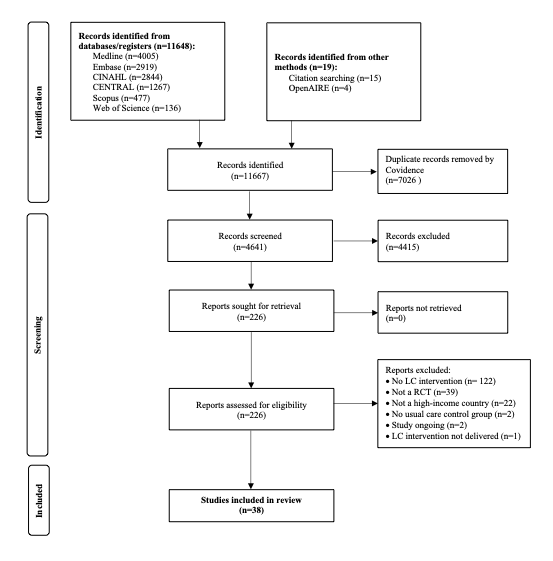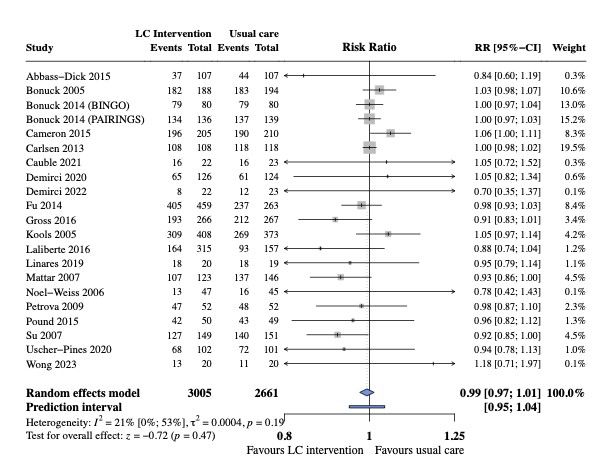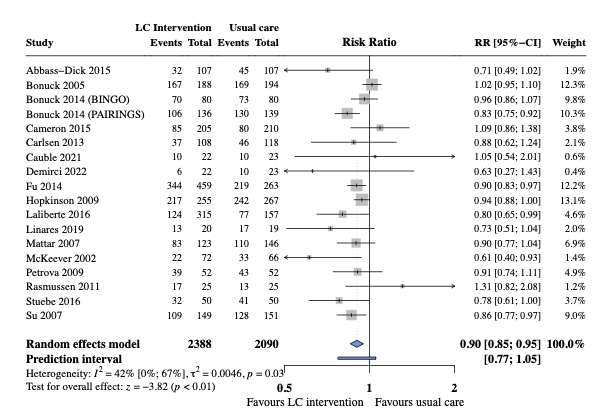Breastfeeding/Human Milk
Session: Breastfeeding/Human Milk 1: Breastfeeding
466 - Breastfeeding support provided by lactation consultants in high-income countries for improved breastfeeding rates: A systematic review and meta-analysis
Sunday, May 5, 2024
3:30 PM - 6:00 PM ET
Poster Number: 466
Publication Number: 466.1860
Publication Number: 466.1860

Curtis J. D'Hollander, MSc, RD
PhD(c)
University of Toronto
London, Ontario, Canada
Presenting Author(s)
Background: It is well established that breast milk offers numerous health benefits. The World Health Organization and others recommend exclusive breastfeeding (i.e., nothing but breast milk) until the child is 6 months of age, with any breastfeeding up to 2 years of age or beyond. Yet, these recommendations are met less than half of the time in high-income countries. Lactation Consultants (LCs) specialize in supporting families with breastfeeding and are a promising approach to improving breastfeeding rates.
Objective: The aim of this systematic review was to evaluate the effect of LC interventions provided to families, compared to usual care, on stopping exclusive breastfeeding before 6 months (primary outcome) and 6 weeks, and stopping any breastfeeding before 6 months and 6 weeks.
Design/Methods: A search was developed to identify randomized controlled trials published in any language between January 1985 and May 2023 in CENTRAL, MEDLINE, EMBASE, CINAHL, Scopus, Web of Science, and the grey literature. Eligible studies were conducted in high-income countries as per the World Bank and included a LC intervention. Meta-analysis using random-effects models was performed. Meta-regression was conducted to identify the characteristics of interventions which were most effective, restricted to the primary outcome. PRISMA guidelines were adhered to, and this review was registered in the PROSPERO database.
Results: The search yielded 11667 records, of which 38 studies were included in the review (Figure 1). The publication date of included studies ranged from 1992 to 2023, most were conducted in the USA (n=22), and the number of study participants ranged from 39 to 1312. For the primary outcome, there was little evidence that LC interventions reduce the risk for stopping exclusive breastfeeding before 6 months, compared to usual care (RR: 0.99; 95% CI: 0.97, 1.01; I2: 21%) (Figure 2). Meta-regression did not identify any intervention characteristics as most effective for reducing the risk for stopping exclusive breastfeeding before 6 months. For the secondary outcomes, LC interventions were found to lower the risk for stopping exclusive breastfeeding before 6 weeks (RR: 0.90; 95% CI: 0.85, 0.95; I2: 42%) (Figure 3), and stopping any breastfeeding before 6 months (RR: 0.94; 95% CI: 0.90, 0.99; I2: 34%) and 6 weeks (RR: 0.79; 95% CI: 0.67, 0.92; I2: 60%).
Conclusion(s): LC interventions are effective at improving exclusive breastfeeding at 6 weeks and any breastfeeding at 6 months and 6 weeks. However, improving exclusive breastfeeding at 6 months remains a challenge which future breastfeeding interventions need to address.



